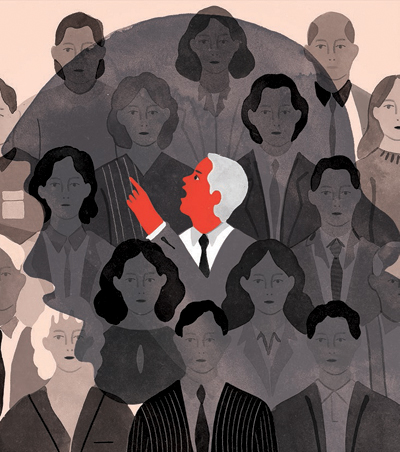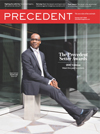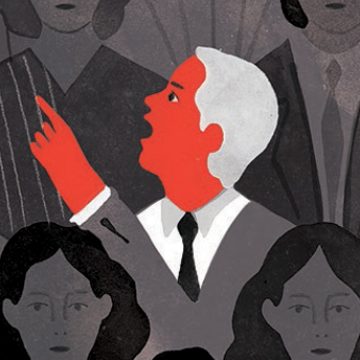In law, civility is too often seen as the highest virtue. Nothing is as important, this line of thinking goes, as politeness and the ability to make rational arguments in a measured tone. As a result, many see incivility as the antithesis of professionalism, unbecoming of our self-professed nobility.
But outside the legal profession, the world burns hot with incivility. We live in the age of Trumpism. Around the world, politicians freely traffic in division and fear. Western nations that once welcomed people of all religions now detain Muslims at the border. Mass deportations are planned; walls may be built.
Those who welcome the arrival of this new world do not defend it in a measured tone. The shrill language of online trolls has moved out from under digital bridges and into the mainstream media. It’s part of our day-to-day lives.
Against such an enemy, incivility is a necessary tool of resistance. If a world leader wants to ban Muslims, and won’t back down, it’s essential to ramp up the response. That’s how protests are born.
And yet, meanwhile, our profession continues its siege on incivility. Take the case of Joseph Groia.
Back in 1999, John Felderhof, the chief geologist at Bre-X Minerals, was charged with insider trading. Groia, a top securities litigator, took the case. The mining company once sold for more than $250 a share. But when news broke that its gold deposits in the Borneo jungle were a fraud, Bre-X was ruined. So, too, were the investments many Canadians had in the company.
The Ontario Securities Commission felt pressure to issue a strong response. And it exerted its entire weight into the case against Felderhof.
 For his part, Felderhof hired Groia, an advocate who defends his clients with zeal that is rare in courtrooms — and, in the majority of cases, that isn’t necessary. But Felderhof ’s case was not normal. He faced an opponent that refused to give up any ground. So he needed a litigator like Groia.
For his part, Felderhof hired Groia, an advocate who defends his clients with zeal that is rare in courtrooms — and, in the majority of cases, that isn’t necessary. But Felderhof ’s case was not normal. He faced an opponent that refused to give up any ground. So he needed a litigator like Groia.
In the end, Groia won and Felderhof was acquitted. The case raged on for seven years, mired in acrimony. Facing extraordinary circumstances, Groia had no choice but to fight absurdly hard to win.
But Groia was too much for the Law Society of Upper Canada to handle. After Felderhof ’s acquittal, it went after Groia for his behaviour during the trial. This time, he lost: at a disciplinary hearing, in 2011, a panel of benchers ruled that Groia violated the Law Society’s courtroom civility rules. Groia then appealed that ruling at Divisional Court (and lost) and the Ontario Court of Appeal (and lost). But this fall, he will get one more chance when he appeals the ruling at the Supreme Court.
Groia may not be the last lawyer to face incivility charges. When I see lawyers zealously defend their clients in the courtroom, I wonder if the Law Society will come down on them. That’s not a question I should have to ask.
The Groia case sets a dangerous precedent. And there couldn’t be a worse time to continue to wage war, once again, on his lack of civility. Our society faces an extraordinary enemy: bigotry in the age of Donald Trump. We cannot resist in a measured tone. To protest and to let right prevail, we’ll need a healthy dose of incivility. We’ll need a little Groia to save us all.
 Sean Robichaud is a criminal defence lawyer in Toronto. He’s also the founder of King Law Chambers. Follow him on Twitter at @SeanRobichaud.
Sean Robichaud is a criminal defence lawyer in Toronto. He’s also the founder of King Law Chambers. Follow him on Twitter at @SeanRobichaud.
 This story is from our Summer 2017 issue.
This story is from our Summer 2017 issue.
Illustration by Tallulah Fontaine


